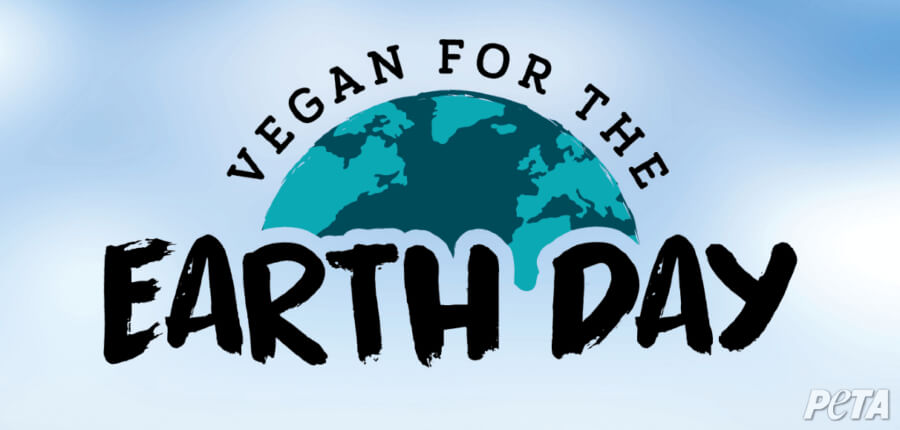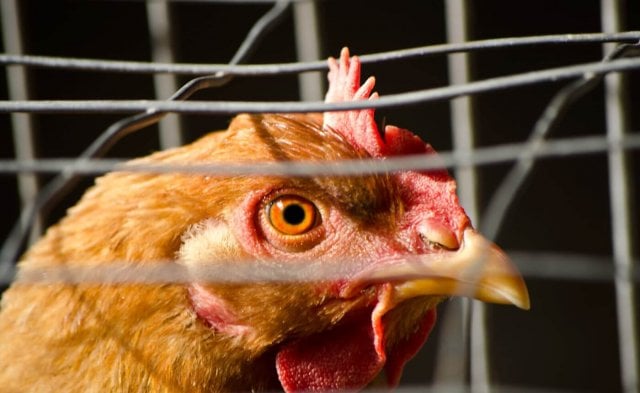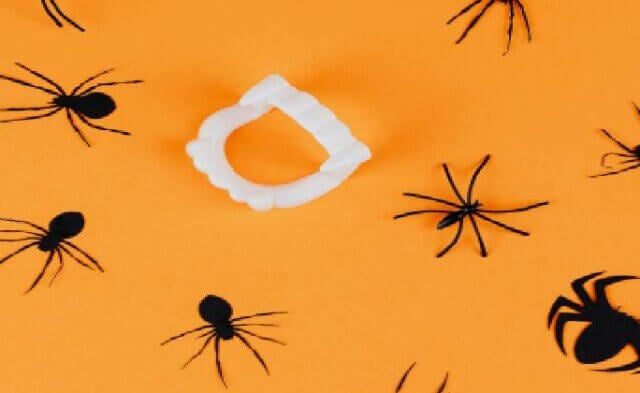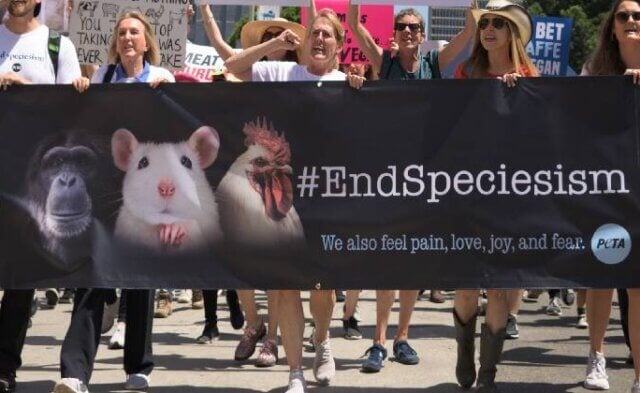On April 22, 1970, 20 million Americans “took to the streets” to demonstrate for a clean, livable environment. Though that won’t be happening this Earth Day, as the COVID-19 pandemic continues to leave most of us confined to our homes, we can still make a difference! This year, we can all help halt the climate catastrophe and other environmental problems in real life by eating vegan foods, rather than animal-based ones, and urging our friends and followers on social media to do the same.
The novel coronavirus likely originated in a “wet market” that sold fish, live poultry and exotic animals for human consumption. Wet markets, factory farms and slaughterhouses not only contribute to potentially deadly diseases, such as COVID-19, they also release significant amounts of greenhouse gases into the atmosphere. A 2018 University of Oxford study involving 119 countries and 38,000 commercial farms found that beef and other animal-based foods have an “outsize effect” on emissions, noting that just 2 pounds of beef generates 132 pounds of greenhouse gas emissions. Overall, the production of animal-derived foods is responsible for 10 to 50 times more emissions than the production of vegan foods.
The United Nations’ Intergovernmental Panel on Climate Change says that the West’s high consumption of meat and dairy is fueling the climate catastrophe and that cutting them from our diets could reduce our carbon footprint from food by two-thirds. It will also help conserve resources, reduce pollution and prevent the loss of forests — not to mention the slaughter of billions of sentient animals.
Oxford University researcher Joseph Poore says that going vegan is “the single biggest way” to reduce our impact on the planet. Animal agriculture plays a huge role in everything from water pollution and water shortages to deforestation and food scarcity. A 2018 NRDC report called the agricultural sector “a serious water polluter” and indicated that it was the “leading cause of water degradation” around the world. In the United States, it’s the main culprit when it comes to contaminated rivers and streams, the second when it comes to wetlands and the third for lakes.
A recent University of Delaware study found that 55% of the water taken from the Colorado River basin is used to grow food for cows. As a result, 53 species of fish are at risk of extinction, because freshwater stores are wasted on water-hungry crops to feed animals who are bred to be killed and eaten, even though ethical and environmentally friendly options exist.
And freshwater stores aren’t all that’s being exhausted by meat production. According to the Yale School of Forestry & Environmental Studies, cattle ranching accounts for 80% of current deforestation rates, making it the largest driver of deforestation in every Amazon country.
When Jessica Fanzo, a professor at Johns Hopkins University, studied ways to feed a growing global population — without sacrificing any forests — she found that the only option is for everyone to go vegan, and that we’ll be in “dire straits” if we don’t.
Thankfully, we’re all learning that we can change our behavior to beat a crisis — or at least prevent one from worsening. Eating Earth-friendly vegan foods is easy and enjoyable, and it will help prevent future pandemics and further environmental destruction. So, this Earth Day, let’s help our planet and spare animals suffering by going vegan!





